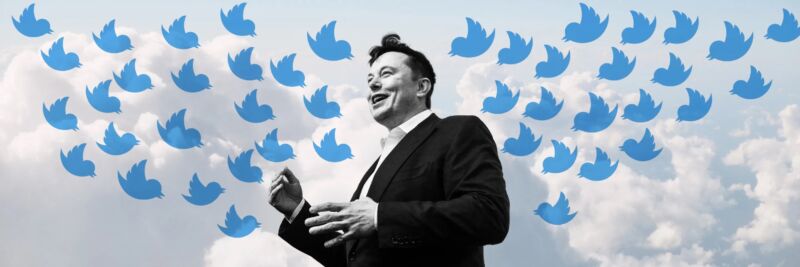
Even as his $44 billion buyout came down to the wire, Elon Musk kept Twitter guessing.
Normally, lawyers and advisers on each side of a corporate transaction work closely together to ensure a smooth closing. But as the clock ticked down towards a court-imposed October 28 deadline for the takeover to close, Musk’s camp mostly worked in isolation, leaving Twitter on the sidelines with their fingers crossed.
“We didn’t know when we would close on Thursday night until 15 minutes before it happened,” said one Twitter adviser.
After word came through that the deal was done, those with skin in the game breathed a sigh of relief. “Man am I happy about it ending and, from a shareholder [point of view], ending well,” said one of Twitter’s largest shareholders.
The purchase of the influential social media platform by the world’s richest man has been among the most colorful and chaotic deal dramas in corporate history.
It brought together some of the most powerful players on Wall Street—with JPMorgan Chase and Goldman Sachs advising Twitter under the code name Project Tundra, and Morgan Stanley and Barclays in Musk’s corner under Project X—as well as Silicon Valley bigwigs and an army of lawyers.
Even for veteran dealmakers, Musk’s unorthodox Twitter takeover broke new ground as the sides engaged in a fierce legal battle. At Twitter’s law firm, Wachtell Lipton, junior lawyers became “meme-splainers” to their senior colleagues, deciphering Musk’s esoteric Internet postings and finding ways to use some of them—including an emoji of a pile of poo—against him.
The episode has opened a window into how Musk does business, as he went from one of Twitter’s most-followed users to its owner, with the task of turning around a struggling company with an outsized influence on global politics and culture.
The deal comes together
Musk’s acquisition of Twitter started as it ended: hastily.
The Tesla chief began building a 9 percent stake in Twitter in late March, prompting the social media company to offer him a board seat. He agreed. But then after being reprimanded by chief executive Parag Agrawal for running a poll asking “Is Twitter dying?,” Musk instead decided to buy the entire company, offering $54.20 a share—the “420” widely interpreted as a reference to marijuana culture.
The $13 billion financing package, one of the largest ever arranged on Wall Street, was quickly cobbled together by a group of banks led by Morgan Stanley. One person involved in the debt financing described the due diligence on the deal as “easy,” because “there was none.”
Others involved in the financing saw little risk in backing Musk. But that was before debt markets started to seize up later in the summer. The banks and Musk would quickly regret their haste as interest rates surged and technology stocks plunged.
Meanwhile, Morgan Stanley, led by star investment banker Michael Grimes, raced to locate equity investors to buy into the takeover and lower Musk’s financial burden. Potential US private equity suitors such as Thoma Bravo were sounded out but ultimately passed.
Instead, Musk gathered over $7 billion in equity commitments from an unusual mix of investors, including Silicon Valley billionaire Larry Ellison, cryptocurrency exchange Binance, venture capital firms Andreessen Horowitz and Sequoia Capital. He also turned to Middle Eastern backers like QIA, Qatar’s sovereign wealth fund, and Saudi Prince Alwaleed bin Talal bin Abdulaziz al Saud.
Text messages produced during the legal fight showed that co-investors did little analysis of their own, deferring instead to Musk. “If you are considering equity partners, my growth fund is in for $250M with no additional work required,” wrote Marc Andreessen.
Musk’s swoop came at a moment of weakness for Twitter, which was battling slowing advertising sales and lackluster product innovation under a new, little-known chief executive. Some believed Musk could breathe new life into the faltering platform.
He also won plaudits from the libertarian and conservative Silicon Valley figures in his orbit—including David Sacks, Jason Calacanis, Joe Lonsdale and Peter Thiel—who railed against social media censorship. Mathias Döpfner, chief executive of Germany’s Axel Springer media group, even wrote Musk a detailed proposal for a “true platform of free speech.”
Support came from Twitter founder and former chief executive Jack Dorsey too, who egged Musk on and criticized the company’s directors as “terrible” despite serving alongside them on the board.
Despite this enthusiasm, tech markets soured—and so did Musk’s appetite for the deal.
reader comments
192